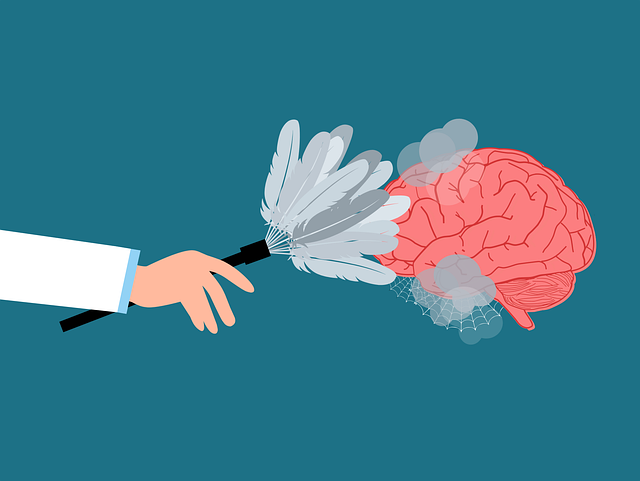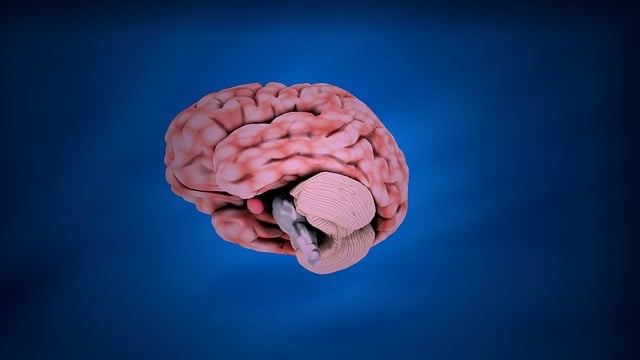Arvada Eating Disorders Therapy provides comprehensive, specialized support for individuals struggling with alimentary conditions, focusing on addressing core emotional and psychological issues through tailored treatments like cognitive-behavioral therapy and mindfulness practices. Their innovative Recovery-Focused Management (RFM) strategies combine group therapy, emotional regulation techniques, and advocacy for patient rights, fostering resilience, self-worth, and long-term recovery. Measured through KPIs including client feedback and mental health assessment improvements, Arvada Eating Disorders Therapy continuously refines its programs to emphasize inner strength development and mind over matter principles, ensuring dynamic and impactful eating disorder recovery.
At Arvada Eating Disorders Therapy, we’re pioneering innovative approaches to enhance patient resilience. This article delves into the powerful tool of RFM (Recovery Capital Framework) and its pivotal role in fostering resilience. We explore why resilience exercises are essential in eating disorder therapy, presenting practical implementation strategies that have shown remarkable effectiveness. Learn how Arvada Eating Disorders Therapy is measuring success and continually improving care through these transformative practices.
- Understanding RFM and Its Role in Resilience Building
- Identifying the Need for Resilience Exercises in Eating Disorder Therapy
- Practical Implementation Strategies at Arvada Eating Disorders Therapy
- Measuring Success and Continuous Improvement
Understanding RFM and Its Role in Resilience Building

Identifying the Need for Resilience Exercises in Eating Disorder Therapy

In the realm of Arvada Eating Disorders Therapy, recognizing and addressing the core issues is imperative for long-term recovery. Eating disorders often stem from complex emotional and psychological factors, making it crucial to incorporate resilience-building exercises into treatment plans. These exercises are designed to empower individuals by teaching them effective coping strategies to navigate triggers and challenges. By fostering emotional intelligence and enhancing social skills training, therapists can aid patients in developing a stronger sense of self-worth and resilience.
Resilience is a vital component in overcoming eating disorders as it enables individuals to bounce back from setbacks and maintain healthy behaviors. Through targeted interventions, therapists can guide patients towards understanding their emotions, regulating stress, and building supportive relationships—all essential aspects of emotional intelligence. Social Skills Training, for instance, plays a pivotal role in helping individuals with eating disorders reconnect with others, break free from isolation, and foster an environment conducive to recovery.
Practical Implementation Strategies at Arvada Eating Disorders Therapy

Arvada Eating Disorders Therapy has pioneered innovative approaches to implement RFM (Recovery-Focused Management) strategies, fostering a holistic environment for individuals battling eating disorders. One practical implementation involves group therapy sessions that emphasize emotional regulation techniques, encouraging clients to develop healthy coping mechanisms and positive thinking patterns. These sessions create a supportive network where members learn from one another’s experiences, strengthening their resilience.
The center also integrates Mental Health Policy Analysis and Advocacy into the treatment plan, empowering patients to understand and navigate their rights within the healthcare system. This dual focus on emotional well-being and policy awareness equips individuals with the tools to actively participate in their recovery journey, promoting a sense of agency and self-determination crucial for long-term success.
Measuring Success and Continuous Improvement

Measuring success is a critical aspect of any therapy program, especially when addressing complex issues like eating disorders. At Arvada Eating Disorders Therapy, we utilize a variety of metrics to assess progress and ensure our strategies are effective. This involves tracking key performance indicators (KPIs) such as client feedback, treatment adherence rates, and improvements in mental health assessments. By regularly evaluating these factors, we can pinpoint areas where our methods excel and identify aspects that require refinement.
Continuous improvement is a cornerstone of our approach. We foster an environment where learning and adaptation are encouraged, emphasizing the importance of Inner Strength Development and Mind Over Matter Principles. Through ongoing monitoring and feedback, our team refines Emotional Well-being Promotion Techniques, tailoring them to meet the unique needs of each client. This dynamic process ensures that our programs remain relevant and impactful in helping individuals overcome eating disorders.
Arvada Eating Disorders Therapy has successfully integrated RFM (Resilience, Flexibility, and Mindfulness) exercises into their therapeutic approach, demonstrating a commitment to enhancing patient resilience. By focusing on these core aspects, the program equips individuals with valuable coping strategies to navigate life’s challenges. The practical implementation strategies outlined in this article offer a roadmap for other therapy centers aiming to adopt similar initiatives. Continuous measurement of success and encouragement of open feedback foster an environment conducive to growth and improvement, ensuring that Arvada Eating Disorders Therapy remains at the forefront of innovative treatment methods.














